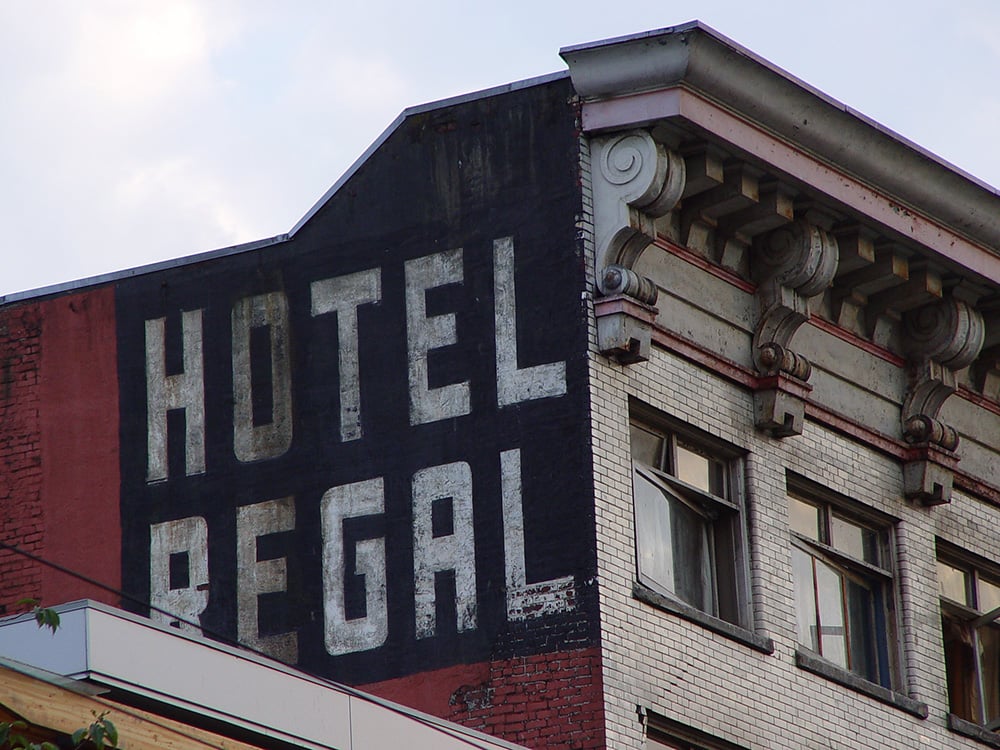The provincial government has stepped in to override a B.C. Supreme Court decision and prevent a worsening homelessness crisis in Vancouver this summer.
Vancouver city council approved a bylaw in 2021 that limited rent increases between tenancies in single-room occupancy hotels, which provide 6,567 units of housing for people with low incomes, many with mental health and substance use challenges.
The city’s goal was to discourage landlords from evicting tenants and raising rents for the next occupants, which is allowed under B.C.’s rent controls.
But advocates warned evictions and rent increases had been increasing in the wake of the court decision that struck down the city bylaw.
Wendy Pedersen, a longtime advocate for SRO tenants, said she’s relieved to hear the province will step in.
“These evictions cause a lot of trauma. They’ve caused a lot of chaos in people’s lives, and a lot of chaos in the community,” Pedersen said.
“There are tenants... who’ve been hanging on for dear life, while their landlords have been pressuring them to leave.”
Single-room occupancy hotels are scattered throughout downtown Vancouver and the Downtown Eastside. The century-old buildings have small rooms, shared bathrooms and no kitchens and have become housing for Vancouver’s poorest residents.
Over the years, hundreds of these units have been lost to the affordable housing stock as tenants are evicted and room rates are raised. While B.C. limits rent increases for existing tenancies, when tenants move out, landlords can raise the rent by an unlimited amount. Renter advocates say that creates a powerful profit motive to pressure longtime tenants to leave so new, higher-paying tenants can move in.
Some SRO rooms have even been marketed as trendy urban living, with a tiny room renting for as much as $2,000 a month.
The City of Vancouver’s 2021 bylaw enacted a form of vacancy control for SROs, where rents are tied to the unit, not the tenant. That means when tenants move out, landlords cannot raise the rent by an unlimited amount.
But an SRO landlord challenged the bylaw in court, resulting in the August 2023 Supreme Court decision that struck down that bylaw. Justice Mary Newbury found that the city could not regulate a business that is already regulated by “some other statute,” in this case, the provincial Residential Tenancy Act.
When the city adopted the bylaw in 2021, several SRO landlords told city council they were concerned the more stringent rent control rules would make it impossible to run the aging buildings.
But Pedersen said she believes some landlords became emboldened by the court decision. She’s tracked several buildings that have carried out mass evictions, emptying all the tenants from as many as 247 rooms in total.
The city appealed the August 2023 Supreme Court decision, but the B.C. Court of Appeal upheld the decision in a February ruling.
Coun. Rebecca Bligh said that’s when she and SRO advocates began setting up meetings with the Ministry of Housing to ask the province to step in and use the Municipalities Enabling and Validating Act.
“My understanding of MEVA is that when there is litigious action around the decision of a municipality, the province can essentially elevate the position of the city, and it enables whatever policy is being challenged in the courts,” Bligh said.
The legislation is not used that often, but the province did previously use the act to uphold Vancouver’s decision to move forward with a supportive-housing project at Arbutus Street and Seventh Avenue that was bitterly opposed by some residents.
Bligh said she has frequently met with the SRO Collaborative and other Downtown Eastside organizations over the years and was convinced the SRO eviction trend was increasing and posed a grave threat to tenants.
“I became more aware of the risk of the loss of affordable units when some data started to emerge, showing a very concerning trend,” Bligh said. That data showed a demographic shift for SRO tenants, from people who primarily received social assistance to tenants whose incomes came from other sources.
“We started to see an emergency trend as well, with high tenant turnover and the rents were far exceeding what these rents were — going from $500 a month all the way up to $1,200 a month.”
Bligh said she was concerned that if the city didn’t take action, homelessness would increase in the city.
Bligh is relieved to see the province agree to uphold the city’s bylaw, but she said vacancy control for SROs is just one “band-aid” for a wider housing crisis.
When the bylaw was approved in 2021, it was in the context of a wider plan from the province and city to buy up all remaining privately owned SROs. While BC Housing has purchased several SRO buildings since 2021, 48 per cent of the buildings still remain in private hands. ![]()
Read more: Rights + Justice, BC Politics, Housing, Municipal Politics

















Tyee Commenting Guidelines
Comments that violate guidelines risk being deleted, and violations may result in a temporary or permanent user ban. Maintain the spirit of good conversation to stay in the discussion and be patient with moderators. Comments are reviewed regularly but not in real time.
Do:
Do not: